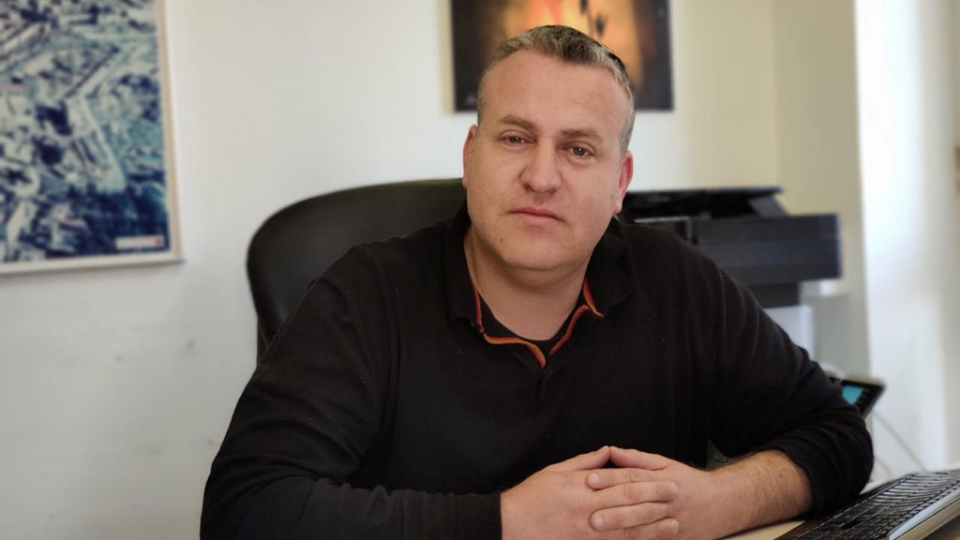Calcalist, Amitay Gazit, 05.10.2021
For the first time, the state is putting its hand in its pocket and subsidizing evacuation-construction projects. Calcalist has learned that the pilot will soon be launched in four cities - Rehovot, Jerusalem, Givat Shmuel and Lod, each of which has several approved evacuation-construction plans.
In the coming weeks, the Israel Land Authority (RMI) will publish four tenders for the construction of hundreds of apartments, most of the proceeds of which will not be transferred to RMI's fund, but will be used to partially subsidize evacuation-construction projects that have not been promoted due to economic viability.
The solution to the lack of economic viability that the state has tried to promote in recent years has been to allocate additional land to the project, i.e. to give developers another plot of land where they can build apartments. But this mechanism was ineffective and applied only a few times.
The pilot is led by the Urban Renewal Authority. In selected cities there are vacant plots that the state will market to developers for residential construction, and the proceeds from the sale of the land to developers will be transferred within three months to the Urban Renewal Authority, minus 20% of the proceeds and deducting development expenses and replacement improvement levy. In the next stage, the Authority for Renewal will issue a call for the selection of developers who will receive financial assistance for the promotion of evacuation-construction projects. The authority will only apply to developers operating in the four cities in the pilot, and the funding will only be given to projects in neighborhoods where apartment prices are known to be low, and market forces alone do not allow the projects to be realized.

Director of the Urban Renewal Authority Elazar Bamberger. "Significant achievement for urban renewal"
The decision on who to provide the assistance and what the amount of assistance will be will be based on a number of criteria, including the degree of maturity of the program, the proportion of tenants who signed binding agreements with the developers and of course the number of apartments in the program and the amount needed to make the project profitable.
The Renewal Authority aims to move from the pilot phase to sweeping implementation across the country within six months. The ambition is that during this period of time, entrepreneurs will be selected in the pilot and projects may even be launched, which will help the decision to make this measure applicable wherever there is no economic viability for entrepreneurs. The need to speed up evacuation-construction procedures became clear in the last month, among other things, with the collapse of a building in Holon and the evacuation of buildings in other cities.
In the four pilot cities, the Renewal Authority has marked a series of suitable complexes. For example, Rehovot has 34 potential eviction-construction complexes in the Kiryat Moshe neighborhood, including 1,326 old apartments, which will be replaced by 9,870 apartments, and it is estimated that starting these projects requires income from marketing land to build 3,200 apartments.
In Jerusalem, there are six potential eviction-construction complexes in Kiryat Menachem, including 645 apartments, and 1,571 apartments will be built in their place, and the estimates required income from the marketing of land for the construction of 981 apartments. In Lod, there are three evacuation-construction complexes, including 464 apartments, which will be replaced by 2,683 apartments, and the estimates required income from the marketing of land for the construction of 722 apartments. In Givat Shmuel, there are three complexes in the Giora neighborhood, with 522 apartments, and 1,240 apartments will be built in their place, and the estimates that require income from the marketing of land for the construction of 170 apartments. In the coming days, it will be decided whether Ashkelon will enter the pilot.
Elazar Bamberger, Director of the Government Authority for Urban Renewal: "Starting the pilot is a significant achievement for urban renewal in general, and for the social and geographical periphery of Israel in particular.
Ministry of Housing Director General Aviad Friedman: "After years of complementary land not raising the economic viability of carrying out urban renewal projects across the country, creative thinking has led to a solution."
Rami CEO Yanki Quint: "The move has a dual benefit, the release of the complementary land on the one hand and the use of permutations to balance projects on the other."



